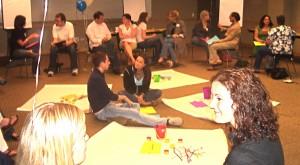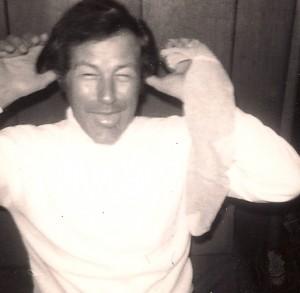In these first few weeks since From Workplace to Playspace has been out I have had the pleasure of sharing some of its key concepts with a wide range of audiences, including creativity and innovation experts, MBA and training and development graduate students, managers and employees, and HR professionals. One of the most consistent questions I have received so far is “What if you don’t have leadership buy in to create playspace in your organization?”

My response to this comes in two, seemingly contradictory, parts:
1) We all can make choices and behave in ways that influence the quality of our conversations, collaborations and overall experience of engagement at work.
2) Significant organizational change requires the support and buy-in from leaders and key stakeholders.
The first part of the response is at the core of From Workplace to Playspace: we must all take responsibility for the quality of our own work experience and address the dimensions and dynamics that are within our span of influence. Because playspace is created in the present moment in the midst of conversations, collaborations, co-creations, learning and change we each can take responsibility for our own mindset and behavior in each specific context. For example, if I show up to a meeting with a mindset that this is a waste of my time, and no one ever has any fresh ideas or perspectives to share and I behave in ways that don’t encourage new thinking, I will very likely have exactly this experience. However, if I choose to shift my mindset to one in which I believe there is room for the play of new ideas and for people to play new roles and I take responsibility to share and provoke such new perspectives and capacities, there is a good chance I will have a different, more engaged experience. This is the essence of my playspace mantra: Give Permission & Take Responsibility. Anyone in the organization, at any level can put this into practice within their span of influence and create more playspace in the present moment.
The second part of my response to this question is also true. When large-scale, organization-wide change at the level of systems, process and culture are necessary, buy-in from organizational leaders and key stakeholders is essential. The people who have the biggest influence on whether or not a change initiative is successful, or a new mindset takes hold are employees’ immediate supervisors, managers and key-stakeholders. When people at all levels of the organization see their leaders changing their behavior and mindset, and willing to acknowledge that they themselves may at times have been one of the blocks to organizational innovating, learning and changing, then others are likely to change their mindset and behavior as well. In this way, organizational leaders also serve as permission-givers and responsibility-takers.
For more examples of how people at all levels of organizations are doing just this, read From Workplace to Playspace and return to playspace.biz in the coming weeks when we start posting brief videos of playspace success stories.

